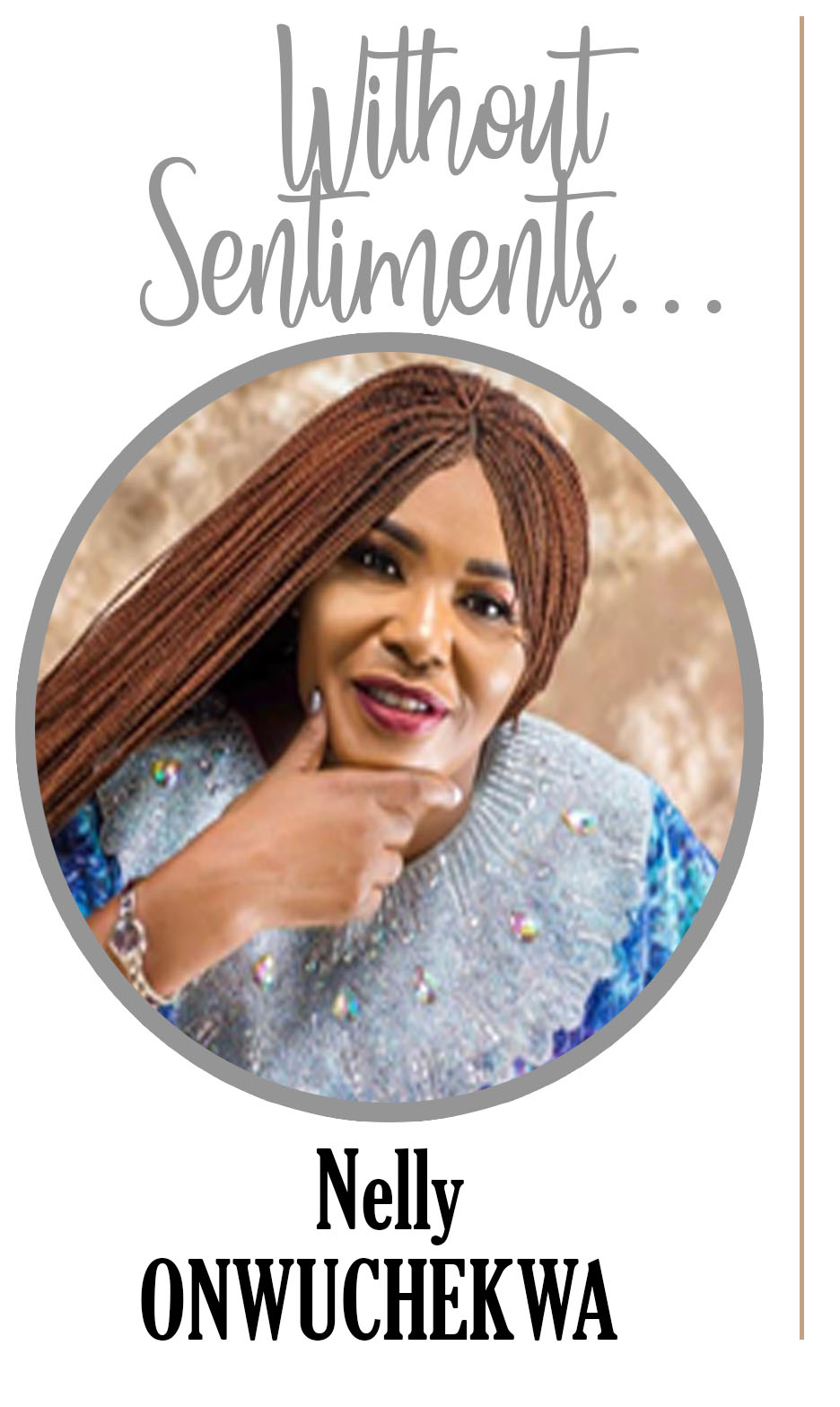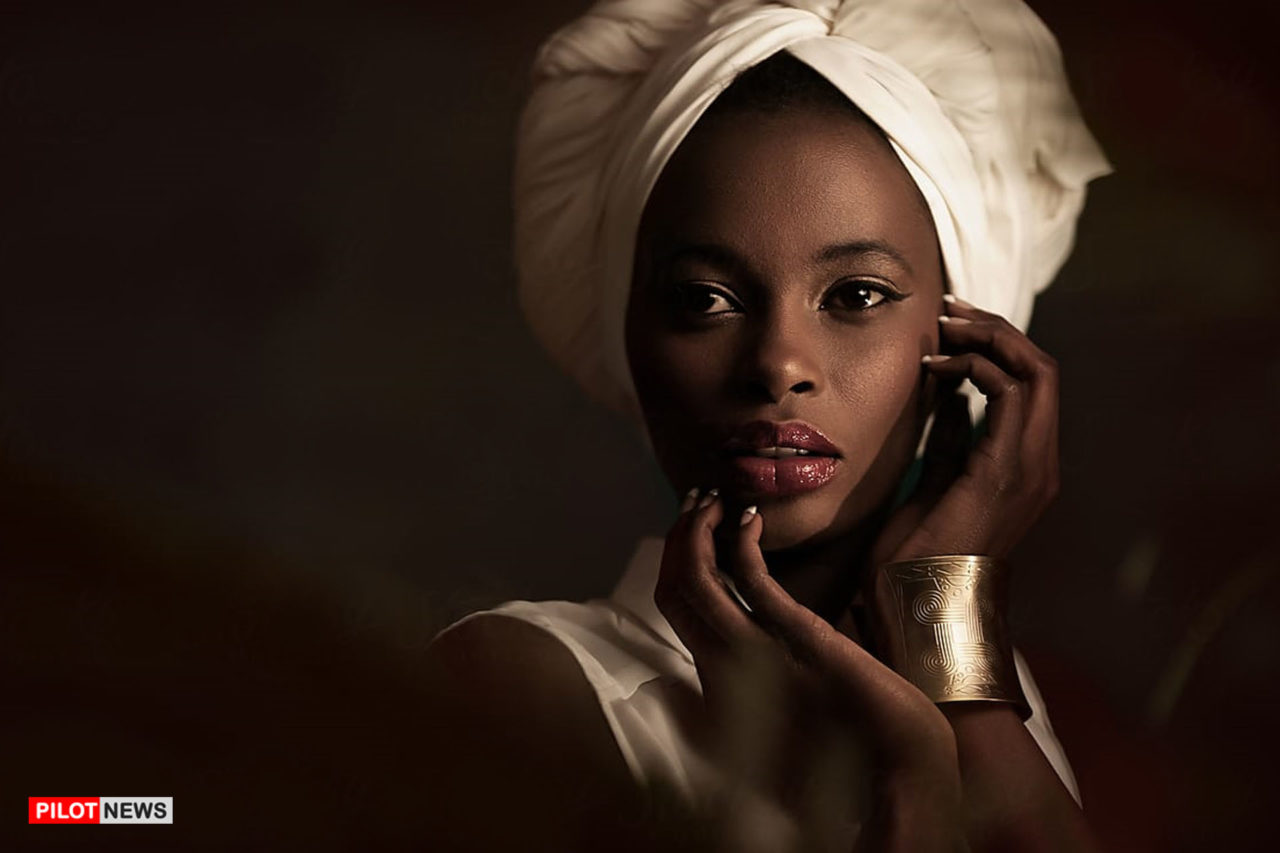
The average African woman is born into the world and tattooed with that mark of Resilience
This Page is NOT your typical woman’s column. It is NOT a fashion and cosmetic exhibition – and definitely NOT against those concepts or lifestyle either. It is an opinion commentary without any atom of sentimentality or emotionalism. It is erroneously believed that only women are endowed with emotional expressions and sentimentality. This is a dead concept because men have overtaken the average woman in expressive emotionalism and sentimental outbursts.
Today, I want to reflect on the resilience of the average rural African woman and her daily challenges to win against all odds. The odds are as varied as they are amorphous. Erroneous Perceptions and biases have continued to trail the girl-child and impacted opportunities for centuries. Rightly or wrongly, the African girl-child is a full-grown woman at birth and structured to toe the path of home-building and economic contribution to the home.
Over a decade ago, I initiated a special project with an invaluable research support from two of my best buddies in Nigeria mainstream media – Mike Ebonugwo (Vanguard) and Onuoha Ukeh (Daily Sun). My buddies were men of unquestionable journalism skills who have climbed up the professional ladder and still making their mark till date. The Book titled “Daughters of the Risen Sun” which aimed at X-raying ‘achievements’ of women of Igbo extraction – a testimonial to the capacity and capabilities of our women – at home and in Diaspora in weathering the thickening and challenging environment of their different spheres of life.‘ For, I am a Daughter of the Risen Sun – and proudly so!
“Daughters of the Risen Sun” took its setting and origin from pre-civil war background of NDI-IGBO though the struggles for Igbo Identity, the Femininity Question, Individual idiosyncrasies and moulds of some NDI-IGBO Mothers. It further explored the zest, spirit and quest for excellence of these women. While covering their success stories, the lowest moments and opportunities are explored. And the ‘FIGHTS’, yes, their environments are laden with ‘landmines of chauvinism and male egoistic challenges – for it has always been a ‘Man’s World’.
Unfortunately, this important project was ‘set aside’ due to conflicting official challenges – assignment deadlines, travels, etc., which tended to erode the vitality of the project. However, I plan to prioritize and progress this important project to completion soonest.
The average African woman is born into the world and tattooed with that mark of RESILIENCE! Exactly five years ago (2015), the African Biodiversity Network and The Gaia Foundation, in collaboration with the African Women’s Development Fund conducted a research: Celebrating African Rural Women:
Custodians of Seed, Food and Traditional Knowledge for Climate Change Resilience which made an awesome reading and provided a great deal of insight of the resilience and impact of the ‘illiterate’ African Woman in keeping the wheel of Agric-economy rolling – in spite of near zero government incentive.
A statement of self-awareness manifesto in Women of Via Campesina International 2013 was emotional and teary:
“We as women from various continents and cultures, with
common histories and struggles for life, our emancipation and that
of our peoples, coupled with the ethical and political imperative
of protecting the right to food, defending peasant agriculture,
biodiversity, our natural wealth and the struggling to end violence
in every form, sharpened before the patriarchal economic system…
We women play a key role in fighting day by day for the defence of
Mother Earth”
The 2015 report indicates that in spite of lack of recognition, the rural ‘illiterate’ African woman has continued to tirelessly connect with the earth with the primary goal of feeding her family.
“Over millennia, women in most African traditions have
played a central role in selecting, storing, and enhancing the
diversity of their seeds. To produce food for their families in
varying conditions, they developed a sophisticated capacity
to understand their ecosystem and the climate, making very
accurate calculations as to what to plant in the coming season.
The complexity of this knowledge system, the intimate
relationship that rural women tend to have with land and
seed, and their understanding of the range of needs of the
family and the community cannot be underestimated. It has
been evolved over generations. This knowledge lies at the
heart of women’s continuing role in building resilience and in
their status in the community.”
This report is invaluable, and provides a more intrusive view on how women (irrespective of class or education) have impacted the exotic tables of the rich and famous continents of the world. It is recommended for reading to broaden some very narrow perspectives. Reading the report takes my memory back to Iwuochang, a riverine suburb community in Ibeno Local Government of Akwa Ibom State, Nigeria. Working with a multinational company, my team was partially responsible for corporate social responsibility delivery. Iwuochang was never represented at all Community Interface meetings held for needs assessment and project alignment. Company was serious about embarking on a massive Economic Empowerment Program for its host communities in the state and beyond. I raised an observation about this unrepresented community and received acknowledgement that we ‘must not forget Iwuochang this time around’.
My Supervisor’s next comment sounded like a threat: “Yeah… Nellie, you will go to Iwuochang for us – with the Community Liaison officer, of course. It has to be done today”. I tried to excuse myself, but his encouraging stare stopped me. “Don’t worry, I will go with you… Relax.” The last comment was most assuring and comforting. I needed someone with authority, who understood the language of Community engagement as well as the terrain. Also, the thought of crossing over to Iwuochang on a safety uncertified speed boat filled me with dread…
That visit was the most instructive lesson for me on the resilience of the rural woman, successful on her terms without expectations of external endorsement. Amongst other community leaders, I met Nma Iquo, the ‘fisherwomen’ association, who must have been in her 50s from my personal ‘guess-timation’. Dressed in her smoked-baptized faded green blouse and weather-beaten brown maxi skirt, Nma Iquo had beside her a large tray with three giant barracuda and five red snappers. In front of her was her locally made smoking kiln; she sang in her local dialect as she scaled the fishes. Her joyous expressions can only be compared with someone who won a million-dollar lottery. I asked permission to engage her in an empowerment discussion. My supervisor directed the community Liaison to interpret – although I could puzzle some of the local language expressions. The 15-minute discourse opened my eyes and broadened my ‘literate’ perspective of the word ‘resilience’.
Question: How can the company help you expand your business?
Nma Iquo: How can the Company expand what it does not understand?
Question: (Shocked) I don’t understand…(I stammered; confused) I mean, how
can we help you do better in you fishing business?
Nma Iquo: Do you know how to catch a fish from that ocean? Ocean is different
from river ooo (She laughed out loud)
Question: (Still confused) Everyone likes to expand their business. Don’t you want
to expand?
Nma Iquo: Sit down my daughter; let me explain. You see that water? I know its
length and breath. I know when to get my catch and exactly where
at a given time. I know when a fish is bad and how to preserve it. My
sons are very good fishermen and I smoke the fish. When I am done,
it can be stay without refrigerator for over a month without going
bad. I have people who come from the city to book for my fish
because they know Nma Iquo. My crayfish is the best in Ibeno – not
one of the best but the BEST. My mother and grandmother taught
me this business and I have trained my children too.
I don’t mind help from your Company; however, you people must be
offering me something that I do not already have – and be prepared
for sustainability. What is the use of giving me a cold room when I do
not have electricity like those in the cities? Again, if you give me light
today, will it continue? I need nets for my children – plenty nets… If I
exhaust it, I would have saved money to buy more for myself…
Question: Only Nets? Nothing more? Really?
Nma Iquo: (Cutting a piece of a freshly smoked tilapia fish from kiln) Taste
this. (I took it and chewed thoughtfully) You see? Does your
company chef cook with this type of fish? After the net, tell
them that we want to supply fish to their kitchen and homes in the
city (Eket).
We know fish and fish know us; Light (electricity) is good, but we
need to sell our fish. We want to expand our market. Give our
intelligent children scholarships in good schools outside the state.
When they graduate, give them work to sustain them so that they
can come home and train more people. When you people are
ready to do this, come again….
Naturally, I was intensely attracted to Nma Iquo because she displayed the resilience of my grandmother – no nonsense and intellectually sagacious. She became my fish supplier – with more lessons at each supply. She taught me a lesson I couldn’t pick up in several Management Classes. Narrating my experience with my supervisor and the Empowerment Consultant, we agreed that Corporate organizations have a lot to learn from rural women about business needs and sustainability. Nma Iquo’s unpublished business lesson on Corporate Social Responsibility is built on native business sense, strategy and sustainability. It taught my Company to rethink and strategize community engagement and empowerment, which enabled us to operate with minimal community disruptions.
Africa is replete with the likes of Nma Iquo – hardworking, intelligent, astute, resilient, and kind – with unrivalled business integrity. They are well educated in their chosen trade; they are passionate about family values and essence of life. They are magnanimous in success and avoid ‘conquest’ like a poison. They are unrepentant in protecting their families from external business incursion – but willing to explore and negotiate what they believe is in the overall family interest.
A salute to primitive doggedness and resilience of the rural African woman!
Your resilience is awe inspiring – It is the Modern Woman’s Inspiration.
- From Threats to Partnership: How Diplomacy Repositioned Nigeria in Washington - January 14, 2026
- When Air Power Becomes a Christmas Performance: The Illusion of Success in Trump’s Nigerian Strike - December 28, 2025
- Burbank Marriage Unravels After Woman Allegedly Used Tracking Devices to Monitor Husband - December 27, 2025

